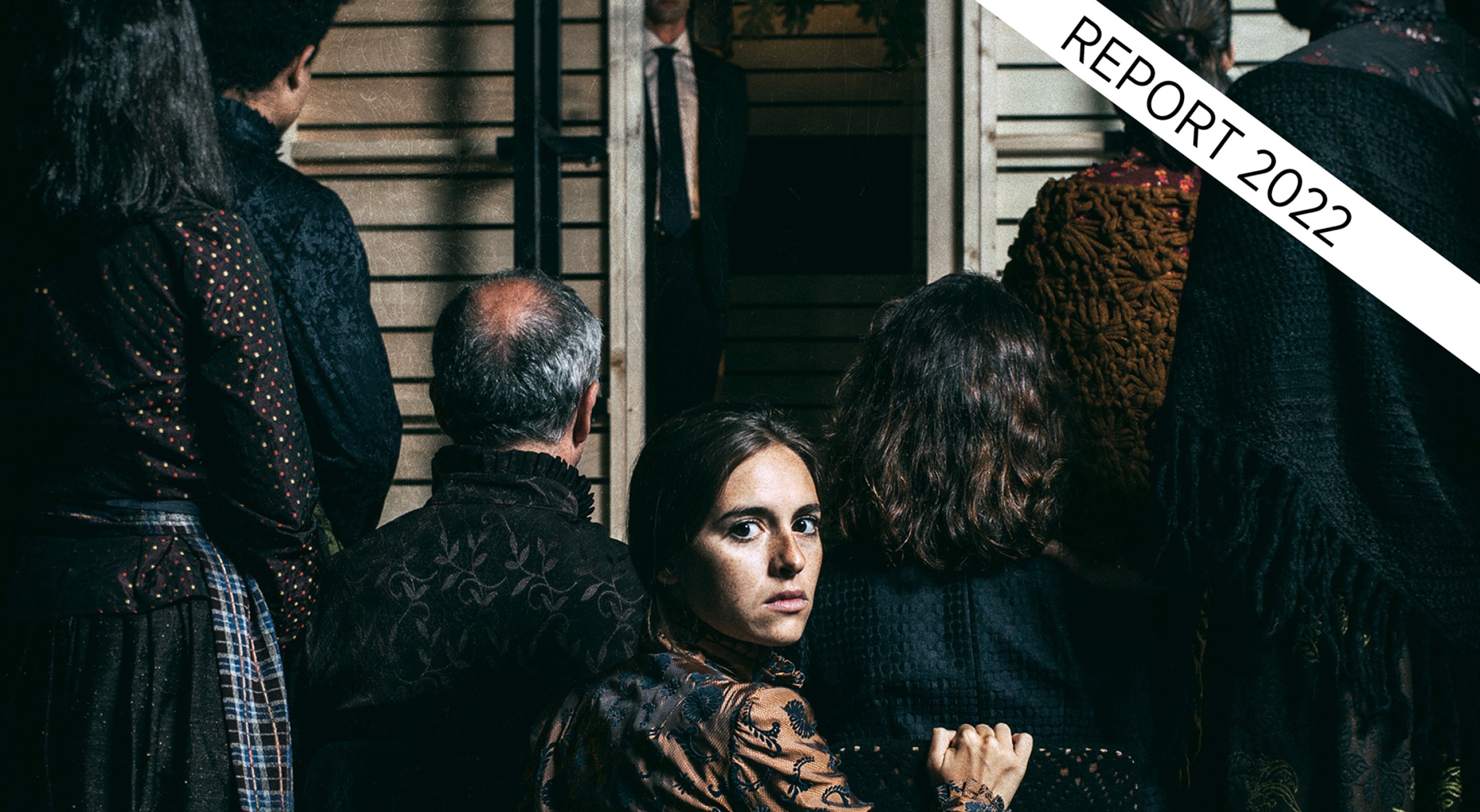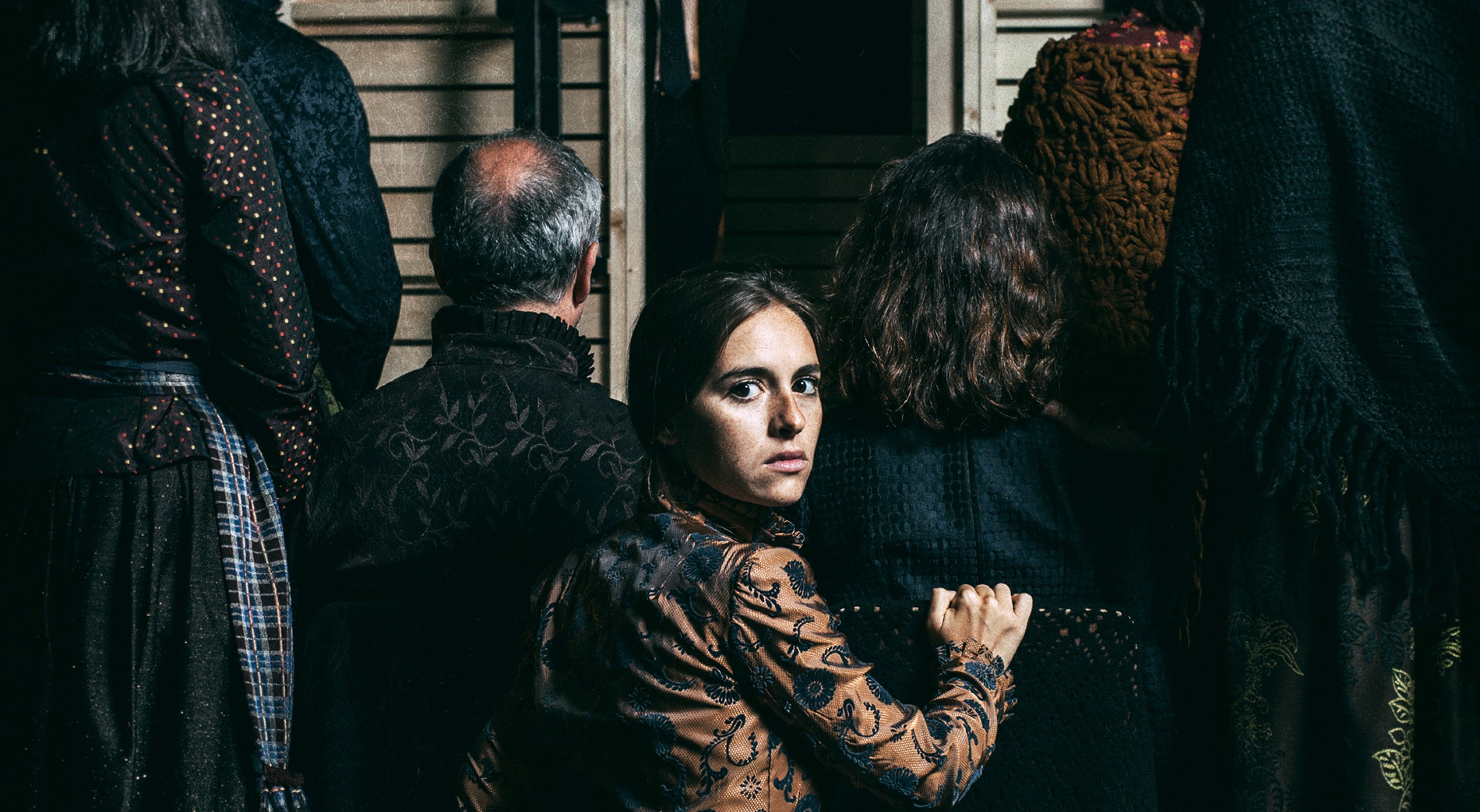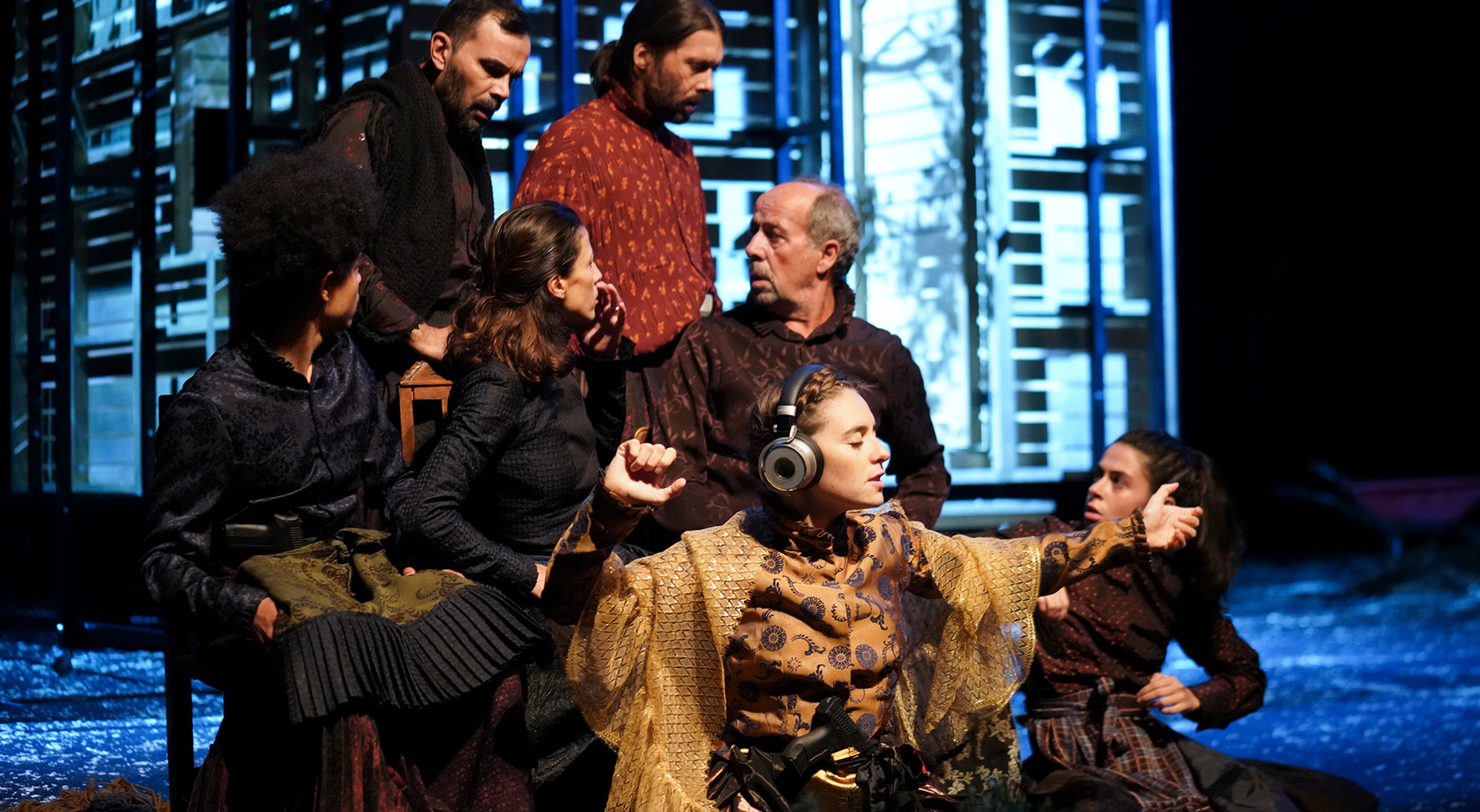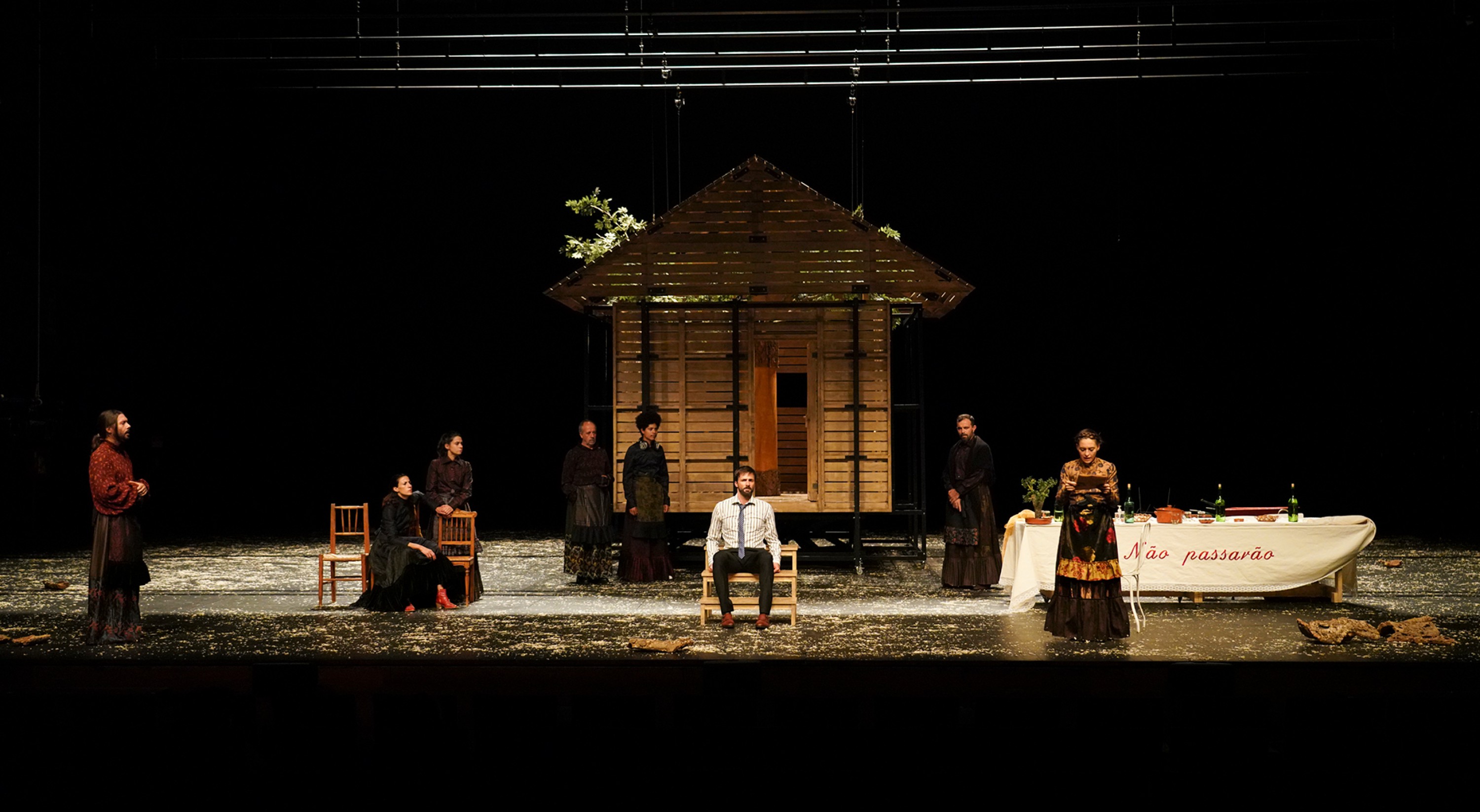Tiago Rodrigues
Catarina et la beauté de tuer des fascistes
novembernov 26 - december – dec 26
Text and direction, Tiago Rodrigues
With António Fonseca, Beatriz Maia, Isabel Abreu, Marco Mendonça, Pedro Gil, Romeu Costa, Rui M. Silva, Sara Barros Leitão
Scenography, F. Ribeiro
Light, Nuno Meira
Costumes, José António Tenente
Sound design, Pedro Costa
Choral and vocal arrangements, João Henriques
Movement support, Sofia Dias, Vítor Roriz
Stage fighting and use of weapons, David Chan Cordeiro
Director's assistant, Margarida Bak Gordon
Translation, Thomas Resendes (French), Daniel Hahn (English)
Surtitles, Rita Mendes
Translation, Thomas Resendes
Executive Production, Joana Costa Santos, Rita Forjaz
Production Assistant, Joana Costa Santos
Produced by Teatro Nacional D. Maria II (Lisbonne)
In association with Wiener Festwochen ; Emilia Romagna Teatro Fondazione (Modène) ; ThéâtredelaCité – CDN Toulouse Occitanie ; Théâtre Garonne – scène européenne (Toulouse) ; Théâtre de Liège ; Teatro di Roma – Teatro nazionale ; Comédie de Caen – CDN de Normandie ; Maison de la Culture d’Amiens ; BIT Teatergarasjen (Bergen) ; Le Trident – Scène nationale de Cherbourg-en-Cotentin ; Teatre Lliure (Barcelone) ; Centro Cultural Vila Flor (Guimarães) ; O Espaço do Tempo (Montemor-o-Novo) ; C.I.C.T. Théâtre des Bouffes du Nord (Paris) ; Festival d’Automne à Paris
With support from Adami
Partnership with France Inter
The time has come for her to « kill her first fascist ». This is the unshakeable rite of passage in a family which has given itself, generation after generation, since the birth of fascism, the mission of eradicating its representatives. It’s your turn now Catarina!
Summer 2020. A day of celebration, beauty and death. The family gathering takes place in a country home, in the south of Portugal, in close proximity to Baleizão, the village where the assassination of Catarina Eufémia took place, an iconic figure of the anti-Estado Novo resistance, the corporatist and fascist dictatorial regime whose brutal rule lasted in Portugal from 1933 to the Carnation Revolution in 1974. The country home is charming, and the atmosphere light, but murder is in the air. Indeed, the purpose of the gathering is to compel the youngest member of the family to kill a man, a fascist, who has been kidnapped. Catarina, however, refuses, giving rise to an explosive, latent conflict between the various members of the family. It at this moment that Catarina Eufémia’s ghost comes to haunt them in their sleep and addresses the fascist from the year 2020.
Faithfully accompanied by the Festival since 2016, the author and director Tiago Rodrigues poses, in a courageous and transparent manner, complex issues at the forefront of current affairs: what is fascism in today’s world? Where is the frontier between the spheres of the “legal” and the “legitimate” in extreme cases? Up until what point can the rules of democracy be infringed upon in defence of its causes?
In the same place



